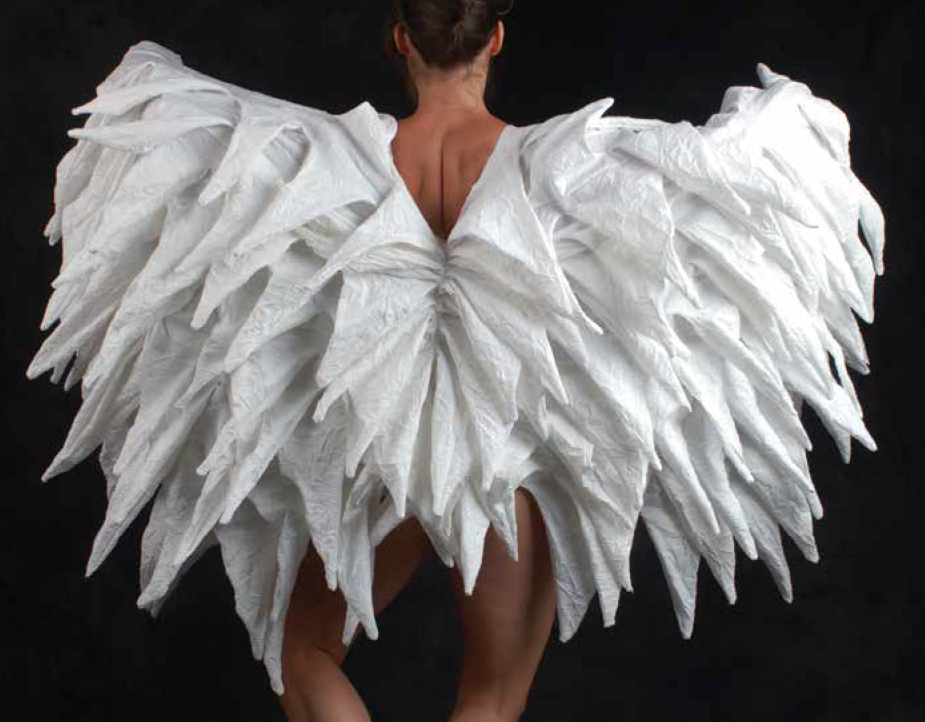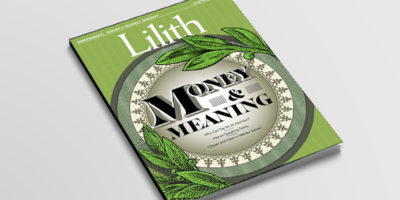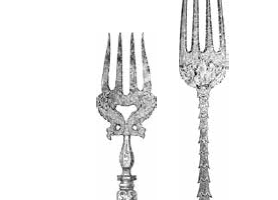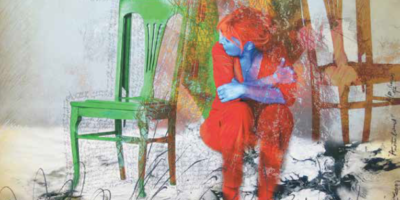
“And With All Your Might”
Coincidences like this accumulated in my life, and with each one came pinpricks of faith. My thoughts swirled with ideas of purpose and soulmates and everything happens for a reason. Meanwhile, I was deciding to drop out of NYU, get a job, rent a room, establish New York residency, and eventually transfer to Hunter College, a city university that would cost me a fraction of the debt I incurred my freshman year. My crush eventually faded into a footnote while larger wheels continued turning.
That same summer, I met a young rabbi with a thick black beard. He was a former hippie; his name used to be Butterfly, and he met his wife at a Grateful Dead concert. Everything about our first interaction sparkled, and his previous name especially resonated: the butterfly is my personal symbol for my mom, who died when I was five. When the rabbi and I met, it was approaching the Hebrew month of Elul—the month of my birthday, the month leading up to the High Holy Days, and an incredibly spiritual time, I quickly learned from him. He overflowed with excitement that I was about to turn 19, because apparently 19 years is how long it takes for the Gregorian and Hebrew calendars to line up. This was clearly meant to be a new cycle for me, a new chapter.
The pinpricks of faith seemed to connect. It all felt right! During high school, when I was alone at my mom’s graveside for the very first time, I promised her that I would learn about my faith one day. This was the day. This was the year. This wacky spiritual guide who used to be a child actor—he sometimes burst into spontaneous songs from Oliver—was going to help me learn. I began going to Shabbat dinners every week at his home with his wife, their small kids, and students my age. He invited me to his class on the weekly Torah portion.
“Is there anything I should bring?” I asked.
“Just your Jewish soul,” he replied.
At the beginning of September, I moved from my cousins’ guest room in New Jersey to a Brooklyn room so tiny that I could stand in the middle and touch everything I had. I also started working at The Strand, a huge used bookstore in downtown Manhattan. This was years before they remodeled. Back then, the piles of books were thrown onto the floor, Sisyphus-like, as soon as the previous piles were shelved—and sometimes sooner.
To have enough time off to go to Rosh Hashanah services that fall, I doubled up day and night shifts, putting in overtime. On the morning of Rosh Hashanah, I woke up to the sound of my own singing. It was a wordless tune, but my soul bubbled to the surface, joyful and clear.
There’s spiritual magic and then there’s plain old contentment, a magic of its own. The year was a jumble of new friends and delicious Shabbat dinners, of willing myself to suddenly understand the Hebrew words in the prayer book, of buying my own groceries and learning how long it takes to hard-boil an egg. I was nostalgic about each experience even then, and basked in my new Jewish vocabulary. My father, far away in Houston, was pleased at first with my exploration of Judaism, and then a little concerned as I traveled past his expectations. But the train had left the station and I was aboard, grinning. “How was Jew night?” one of my coworkers at the Strand used to ask me on Saturday mornings, after my Shabbat evenings with my friends and my rabbi and his family. My answer was always the same. Jew night was great.
What strikes me now is how it all happened at once: faith and God and learning and friends and work and purpose and meaning. I wrote constantly, I did indeed establish New York residency and transfer to Hunter College (the first class I signed up for was Hebrew, of course), and while various other crushes came and went, I usually managed to enjoy the romanticism of being lovelorn and alone. Even being broke didn’t particularly haunt me. Shabbat was the only day all week that I had more than one dish at a meal. My friends and I were obsessed with the purple cabbage salad at the Rabbi’s house, and joked that purple salad was the reason we were becoming religious.
And before those Shabbat dinners, during the silent Amidah prayer that was near the end of services, my every cell would vibrate during the last paragraph. “Open my heart to Your Torah, and let my soul eagerly pursue Your commandments,” I read aloud in a whisper. Begged. I would place a hand on my heart—something I still sometimes do when I read that passage. “That Your beloved ones may be delivered, help with Your right hand and answer me. Do it for the sake of Your Name, do it for the sake of Your right hand, do it for the sake of Your Torah, do it for the sake of Your holiness. May the words of my mouth and the meditation of my heart be acceptable before You, Lord, my Strength and my Redeemer.”
I’m not sure what happened. Or rather, what un-happened. Over the years, I somehow muddled what I had so powerfully found. There was no one moment, no popping of a bubble. The beauty led to belief and the belief led to practice and the practice led to years-long waterfalls of angst. The process seems to have been cumulative: instead of one aspect replacing the other—practice replacing belief and angst replacing practice— everything seemed to be present at once, practice and hesitation and belief and doubt and angst and even moments of awe. As my father always says of his experience as an immigrant, I can’t return to how I was before, and I also haven’t been able to maintain a feeling of ease in my current life. Honestly, I’m embarrassed to catch up with my rabbi whom I still adore; convinced he’ll see immediately that somewhere along the way I lost track.
I can imagine him shouting into the phone now, all love and bravado: “You must reconnect with Hashem! This is the priority of your life and the world is depending on you. Take time off of work if you need to. Treat it like a romantic getaway. Talk to Hashem, just the two of you. Work on your communication skills. Do you understand? This whole thing means bupkis if you’re giving Hashem the silent treatment!”
One night a couple years ago, when I had only two miscarriages under my belt, I did consider my relationship to God. Though hesitant about a finite definition of God as the entity who spoke to Moses on Mount Sinai, I generally believe there is a being—or force, or energy, a source of good—behind the creation of the universe. But as my husband slept beside me and my thoughts rose into the darkness, I thought: maybe it’s all untrue. Maybe there is no God, and nothing happens for a reason. The bed dipped and swooned beneath me. It was like bungee-jumping, bouncing up and then falling again, my face inches away from vast emptiness.
No God meant no ultimate meaning behind any of creation, nothing to fully explain our bodies, or plants, or music, or the ocean, or art, or love. No source of goodness, just the bubbling of chemicals and the bustle of cells dividing, a miracle in its own right that seemed incomprehensible without a force behind it. That version of the universe seemed cold and random and completely unmoored. I couldn’t handle it.
Okay, I thought, let’s go back to believing there is a God.
Because my mom died so young, I used to say that I would never be upset about getting older, that I would treat each birthday as a blessing. I swore that I would be happy about every grey hair. And, mostly, I have been. What has come as a surprise, though, is the emotional distance I feel from myself at 19. I thought I would forever carry that year as a touchstone, that it would charge and recharge me, but these days it feels more like a glittery storybook with half the sequins rubbed off the cover. Was my sense of wonder and faith back then truly due to God’s revealed presence in my life? Or perhaps there is something about being 19 that comes with sequins in the first place, as well as the needle and thread to attach them at every turn.
It breaks my heart to parse the magic with skepticism, especially on the eve of trying to get pregnant again, when I could use some supernatural support. I’m terrified of a fourth miscarriage, of being a person who has had four miscarriages in a row. (Even three in a row feels untenable.) We are doing everything right medically; there have been tests and answers and results and questions that remain. Phrases that I associate with Christian faith like “praying on it” and “let go and let God” keep coming to mind as good ideas, yet I can’t seem to do either.
God, if I were to pray to you, really pray, it wouldn’t be for a baby. It would be for health. We learned that my risk of getting a blood clot is five times higher than it is for the average person, which may have been a contributing factor to the miscarriages. I think a lot these days about the strange gift of unveiling a potentially dangerous quirk of my blood, this vital part of my body that is almost always invisible to me. Whether or not my body brings a child into this world, I hope to be healthy and strong and able to live a long, long time.
When I reconsider my 19-year-old self, what makes me most jealous is that I was simultaneously in complete control of my life—while also deeply believing that there was a guiding force behind everything happening to me. Somehow those two parts jelled, and maybe it’s no coincidence that they jelled in the context of my new-found Jewish faith.
In contrast, I think about my experience a year ago on Rosh Hashanah—my anger at a never-ending cycle of prayer that sounds exactly the same every year. After one particularly tough morning during the holiday, I sobbed as I thought, I want my Judaism to be about more than Judaism. I want Judaism to reveal more than its own secrets. How can I open this lifestyle up so that it gives space and honor to more than the infinite loop of its own requirements? The meals, the services, the holidays, the sermons—they blend together, creating a world that feeds me and saps me at the same time. I show up and I pray, but at the same time, I know I’m not really showing up and I’m not really praying.
It’s lonely without God, who I imagine is vaguely around and half-listening, like a distracted businessperson on a long conference call. My rabbi’s voice whispers in my ear to remind me: “You’ve put yourself on mute.” But of course that’s not my rabbi’s voice. It’s my own.
Julie Sugar is a writer living in Los Angeles, California.
ART BY IDIT KAPLAN – KSUT STUDIO, PHOTOGRAPHY, SAIKE EITAN-STUDIO HAREL




